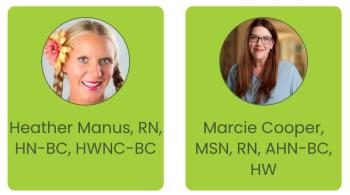
- October 2022
- Volume 3
- Issue 3
- Pages: 14-15
The Great Debate: Kids, Cancer, and Cannabis
Parents are asking about medical cannabis while seeking relief for their cancer-stricken children, but lack of research and ongoing stigma make things complicated.
A cancer diagnosis creates shockwaves of fear, concern, and worry for any person, as well as for their friends, family, and colleagues. When that diagnosis applies to a child, those emotions are amplified. No one wants to see a childhood interrupted by constant doctor and healthcare appointments, aggressive treatments, and debilitating side effects. Parents and guardians of children impacted by cancer are in a constant search for resources that can lessen the impact of the diagnosis, ease their child’s discomfort, or help hasten a recovery from treatment. It is no surprise that many caregivers wonder if cannabis can help, and with the increasing number of states legalizing medicinal cannabis more parents are asking healthcare professionals for advice.
The growing acceptance and legalization of cannabis has provided access to medical cannabis for children like never before. As a result, more people are inquiring about its potential as a treatment option. In a 2017
Although stigma surrounding the use of cannabis is diminishing, large portions of the US population still consider it to be potentially dangerous, especially for young people. The “gateway drug” reputation that has persisted for decades continues to create concern. But there are also more realistic and practical concerns surrounding the use of a psychoactive substance by children. Brain maturity continues well past the teenage years, and there is some evidence that full brain development is not complete until well into a person’s 20s. There is concern that any cannabis-based treatment received by children will impact their brain development, according to a 2022 study (2). However, when reduction of pain and suffering for children is a factor, there are those who suggest that limited exposure to potential hazards is worth the risk. A
Although there is limited data to support the use of cannabis as a first-line treatment in cancer-related symptoms, many adult patients are consuming it to relieve the anxiety, pain, nausea, loss of appetite, and insomnia that often come with a cancer diagnosis and subsequent chemotherapy or radiation treatment. In 2017, the National Academy of Sciences, Engineering, and Medicine released its report on
- There is conclusive evidence that cannabis or cannabinoids are effective at treating chronic pain in adults and chemotherapy induced nausea and vomiting.
- There is moderate evidence that cannabis or cannabinoids are effective at improving short term sleep disturbances and limited evidence at improving appetite and decreasing weight loss.
Overall, there have been multiple studies suggesting that tetrahydrocannabinol (THC), the psychoactive or intoxicating component of cannabis, can be effective in the treatment of nausea, pain, appetite loss, insomnia, anxiety and inflammation—all of which can be side effects of chemotherapy. And while this research shows that cannabis can help relieve symptoms related to a cancer diagnosis, all the research conducted has been with adult subjects. There is virtually
This lack of research creates the biggest stumbling block to physicians and clinicians when it comes to recommending cannabis for their pediatric cancer patients. Since pediatric cancers can vary wildly from adult cancers, it is possible that any therapy, including cannabis, may behave differently in children compared to adults. The limited clinical research combined with a widespread lack of knowledge about cannabis among healthcare professionals keeps clinicians hesitant to recommend cannabis to pediatric cancer patients. However, there exist many cases of cannabis use (primarily, cannabidiol [CBD]) in children to treat pediatric epilepsy and chemotherapy-induced nausea and vomiting (CINV) that show both the safety and efficacy of cannabis in pediatric populations (6). The use of cannabis in these cases indicates that it can be used in children in a safe and effective way with minimal side effects and low risk of serious adverse events.
So, even though access to cannabis has greatly increased, stigma is diminishing in most parts of the country, and physicians and clinicians are beginning to recognize the potential of cannabis treatment for children, there is still a long way to go before cannabis becomes a preferred treatment. Physicians and clinicians overwhelmingly prefer to have stronger clinical evidence on therapeutic effects and clear empirical data on any long-term impacts of cannabis use for pediatric cancer patients. So long as the US federal government continues to regulate cannabis as a Schedule I controlled substance, the much-needed research will continue to be mostly stymied.
In order for the promise of cannabis to be realized for pediatric cancer patients, research and clinical trials must be conducted with children. Cancer healthcare providers can lead the charge by advocating for federal legalization and research focused on children. In addition, physicians and clinicians can recognize that while cannabis use is never appropriate for healthy children, these are not the children in need. Sick children undergoing severe treatment with few options to help them feel better are in great need, and if cannabis can help Leaf411 believes every possible option must be considered. Working in tandem with oncologists, physicians, and other providers, an approach that includes cannabis treatment may make the difference between a child merely surviving cancer treatment or thriving in spite of it.
References
https://medicine.yale.edu/news-article/pediatric-cancer-providers-give-medical-marijuana-a-cautious-thumbs-up/ .https://www.ncbi.nlm.nih.gov/pmc/articles/.PMC8954266/#:~:text=Additionally%2C%20promising%20preclinical%20evidence%20showing,other%20populations%20of%20pediatric%20patients .https://www.cmajopen.ca/content/9/2/E563 .https://nap.nationalacademies.org/resource/24625/Cannabis_committee_conclusions.pdf. https://www.ncbi.nlm.nih.gov/pmc/articles/PMC7796497/ .https://www.ncbi.nlm.nih.gov/pmc/articles/PMC8954266/#:~:text=Additionally%2C%20promising%20preclinical%20evidence%20showing,other%20populations%20of%20pediatric%20patients .
About the Author
Katherine Golden is a registered nurse and CEO, executive director, and founder of Leaf411, a 501(c)(3) nonprofit organization founded in 2019 with a mission to provide education and directional support to the general public about the safe and effective use of cannabis (marijuana and hemp). For more information or to schedule a consultation with a cannabis-certified nurse, call 844-LEAF411 (844-532-3411) or visit
Articles in this issue
about 3 years ago
Cannabis Patient Care October 2022 Digital Editionabout 3 years ago
Overview of the Research on Cannabis for Pediatric Oncologyabout 3 years ago
Cannabis for Children with Cancerabout 3 years ago
A Mother’s Hope: Cannabinoids Helping Kill Cancer CellsNewsletter
Unlock the latest breakthroughs in cannabis science—subscribe now to get expert insights, research, and industry updates delivered to your inbox.


